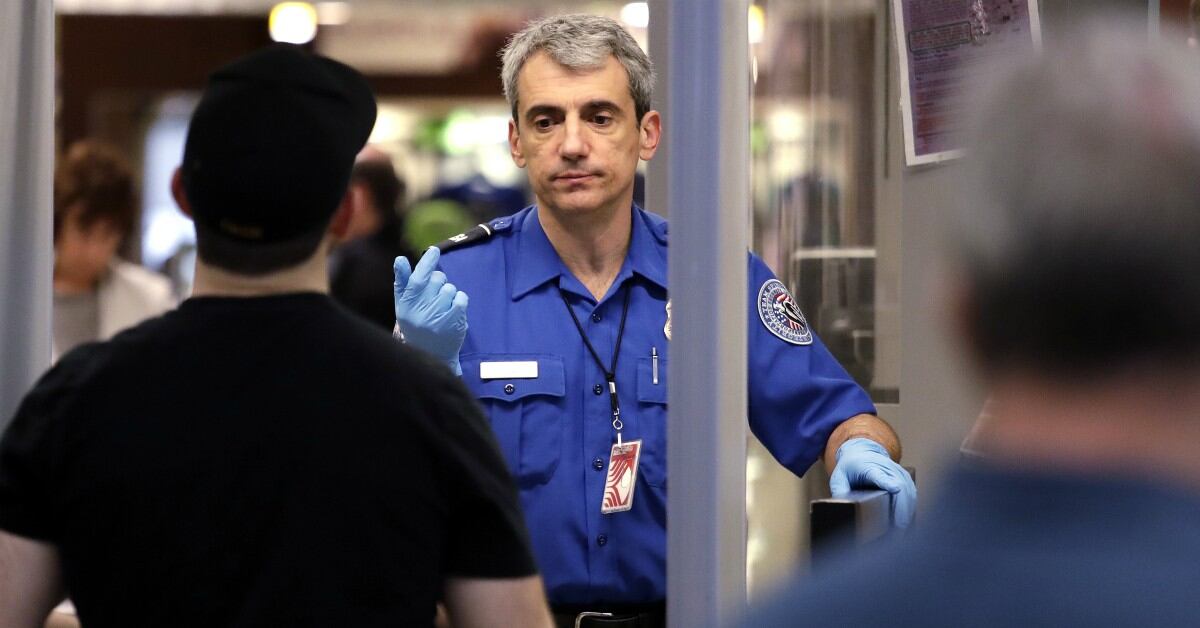The union representing officers at the Transportation Security Administration announced March 27 that the agency is now allowing officers to wear N95 masks to protect them from COVID-19, the new coronavirus.
The American Federation of Government Employees, the largest U.S. federal employee union that also represents 46,000 TSA officers, has been pushing TSA leadership to take more active measures to protect front-line TSA airport officers who could potentially be exposed to COVID-19 while completing security screenings at airport checkpoints.
In a news release, AFGE said that it started writing the TSA about providing more protective equipment in January, before the virus was widespread in the United States. The union leaders said their requests were denied until mid-March.
"We’ve had meetings, made phone calls, and sent emails almost daily urging TSA management to provide N95 masks and other protective equipment for our officers,” said Hydrick Thomas, the president of AFGE TSA Council 100. “Our efforts have finally paid off and now TSOs can serve the public without fear of infecting themselves or passengers.”
The news release said the TSA announced to officers on March 25 that they will be allowed to wear N95 respirator masks after completing a brief N95 mask training.
According to the union, about 60 transportation security officers have tested positive for COVID-19, “with dozens of their coworkers being forced to self-quarantine.”
The latest numbers from the TSA show that air travel is significantly decreasing. On March 26, the TSA processed 203,858 passengers at airport checkpoints. On the same day last year, the TSA processed nearly 2.5 million passengers.
Across both the federal government and the country, personal protective equipment, such as masks, is in short supply.
The recent coronavirus relief package that passed Congress on March 27 and is expected to be signed by President Donald Trump included $100 million for the TSA. The money is available to “prevent, prepare for, and respond to coronavirus, domestically or internationally, which shall be for cleaning and sanitization at checkpoints and other airport common areas.”
The Centers for Disease Control and Prevention has issued guidance to slow the spread of coronavirus, such as practicing social distancing and avoiding congregating in large groups. However, AFGE’s president said federal agencies had a responsibility to do more for its employees.
"It’s important for agencies to know that the CDC guidelines are a minimum requirement,” AFGE National President Everett Kelley said. “Federal agency leaders have the option to provide worker protection at a much higher level.”
Andrew Eversden covers all things defense technology for C4ISRNET. He previously reported on federal IT and cybersecurity for Federal Times and Fifth Domain, and worked as a congressional reporting fellow for the Texas Tribune. He was also a Washington intern for the Durango Herald. Andrew is a graduate of American University.





